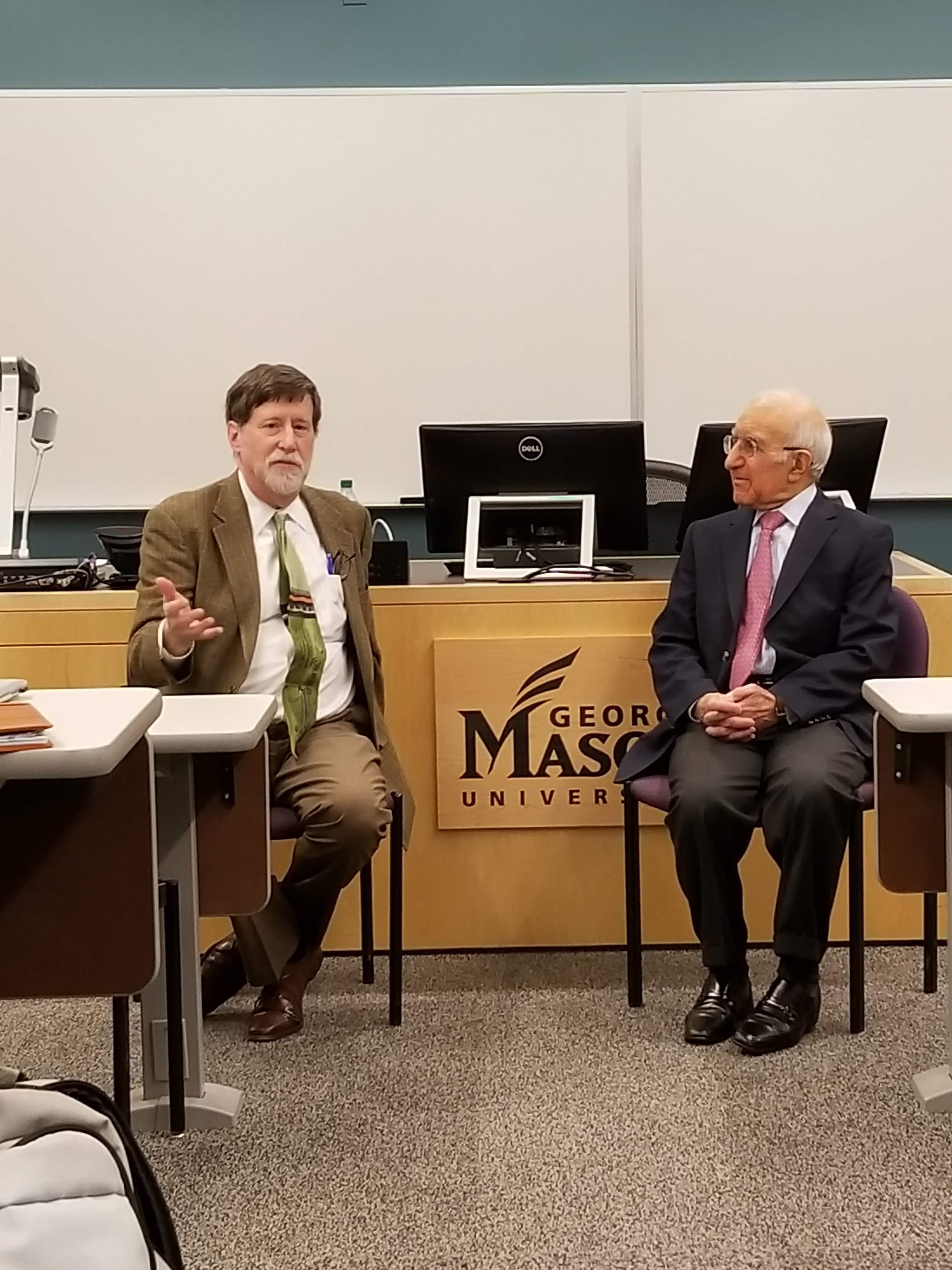Dr. Shaul Bakhash made a timely visit as a CSPS speaker series guest to offer reflective insights on the 40th anniversary of the Iranian Revolution. He asserted that change is possible in Iran in the social sphere through its people, but that fundamental political change remains out of reach. Foreign Minister Javad Zarif’s recent resignation underscores Bakhash’s point.
The Iranian Revolution has proven to be transformative. The Islamic Republic successfully overthrew the culture of monarchy, imposed systematic regulations on society, and began to extend its reach and influence across the region. Within the social sphere, Iranians have shown themselves willing and able to challenge the government. Their efforts have led to measurable, albeit small, gains in the social space. However, the opening of social space has not materialized in the political space.

Despite Iranian’s quest for more moderate leadership, Iran’s citizens have little influence on the political direction of their country. Over the past 40 years, the Supreme Leader and his hardline clerics have consolidated power. Voters have shown greater preference toward moderate candidates hoping to open Iran to the world rather to the hardliners. Iranians continue vote in large numbers but remain handicapped by the rigid political structure.
Iran’s rigid political structure undermines the political will of the people and their elected representatives’ ability to implement more moderate policies, highlighting the durability of the institutions built after the revolution. According to Iran’s Constitution, the President and his appointees are subservient to the Supreme Leader. Dr. Bakhash noted a constitutional clause that ensures this structure can never change. In contrast to other executive power structures, the Supreme Leader is the commander-in-chief of the armed forces, provides direction of domestic and foreign policies, oversees the intelligence apparatus, and appoints half of the members of Council of Guardians. As a precursor to elections, the Council of Guardians is responsible for vetting potential candidates seeking public office.
Foreign Minister Zarif’s resignation is yet another consequence of the distorted political structure. On the day of his resignation, Zarif was conspicuously absent during the first official visit from Syrian President al-Assad to Tehran since the outbreak of the Syrian civil war. Assad was greeted by Ayatollah Ali Khamenei, President Rouhani, and General Solemani of the Iranian Revolutionary Guard General. Observers claim Zarif’s resignation may be a power play to reassert the Foreign Ministry in an internal political strife. Others are holding out hope that President Rouhani will reject his resignation all together. Undoubtedly, Zarif’s standing with the hardliners weakened as the grand bargain deal he helped spearhead – curtailing Iran’s nuclear capabilities in exchange for economic relief – with the United States was nullified by the Trump administration. Since then, hardliners have been further emboldened using the US withdrawal of the JCPOA as validation for their long held skepticism toward the US. Whatever happens, the facts are clear: within the internal power structure in Iran, the hardliners hold the initiative using the system’s rigidity and the institutions they control to subdue the notion of a more open and pragmatic Iran.



